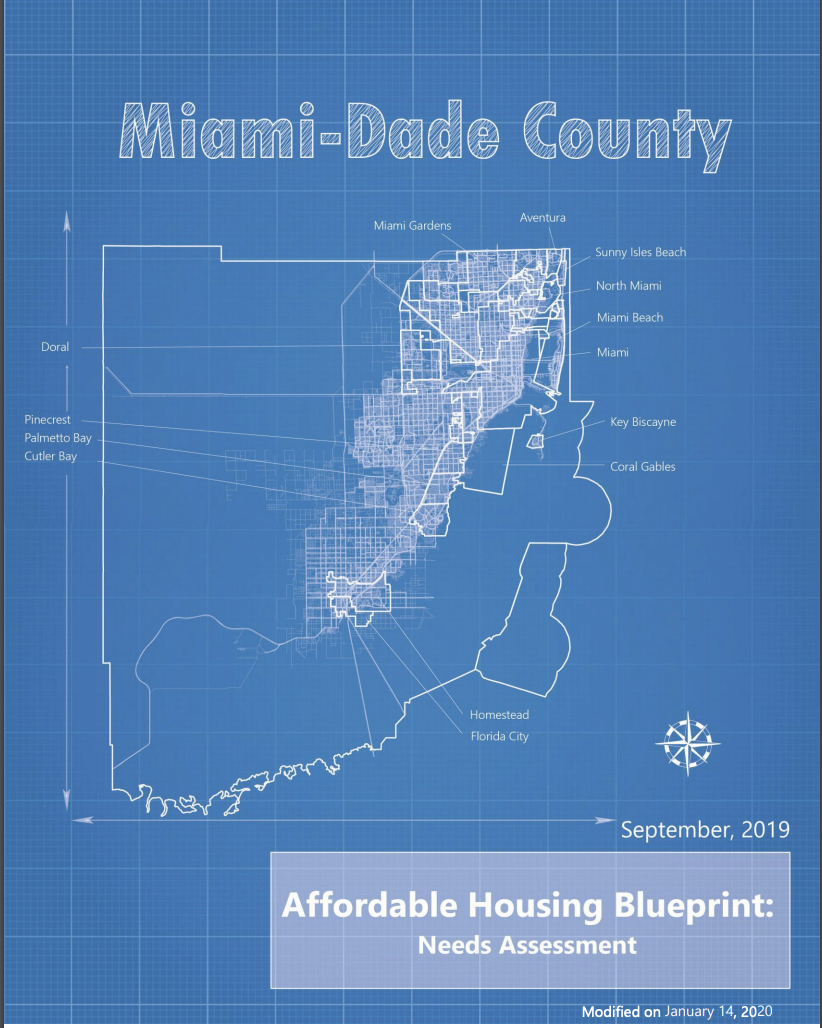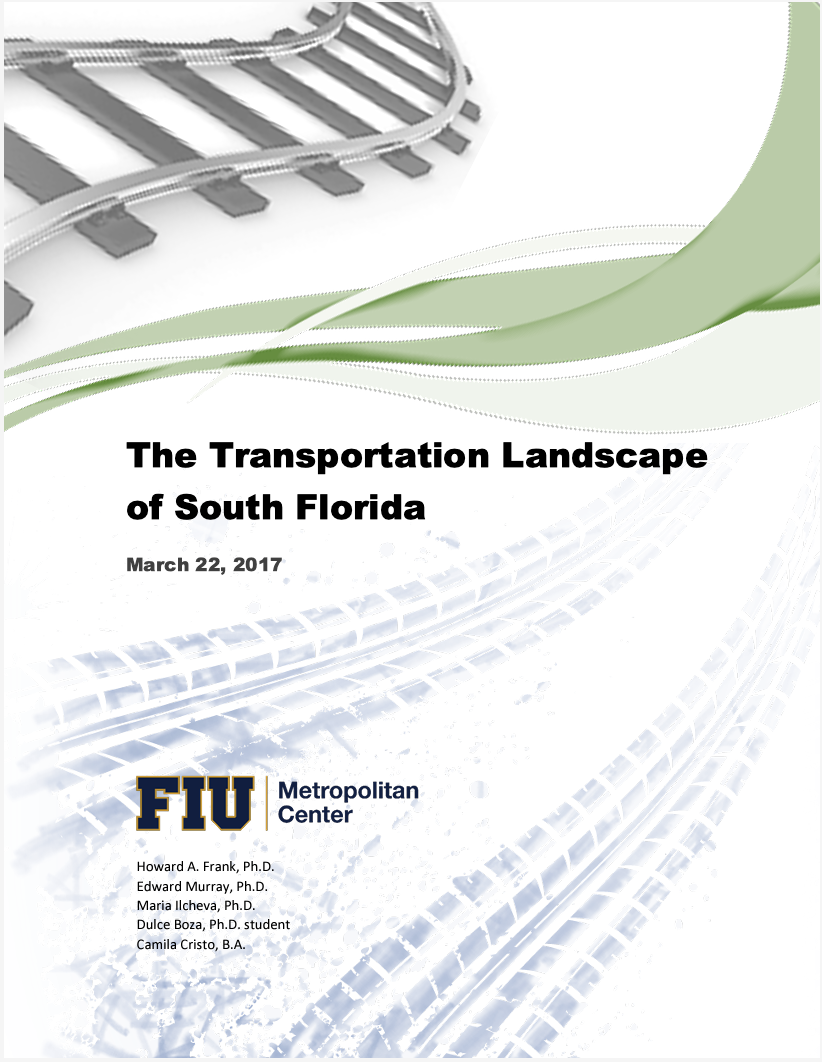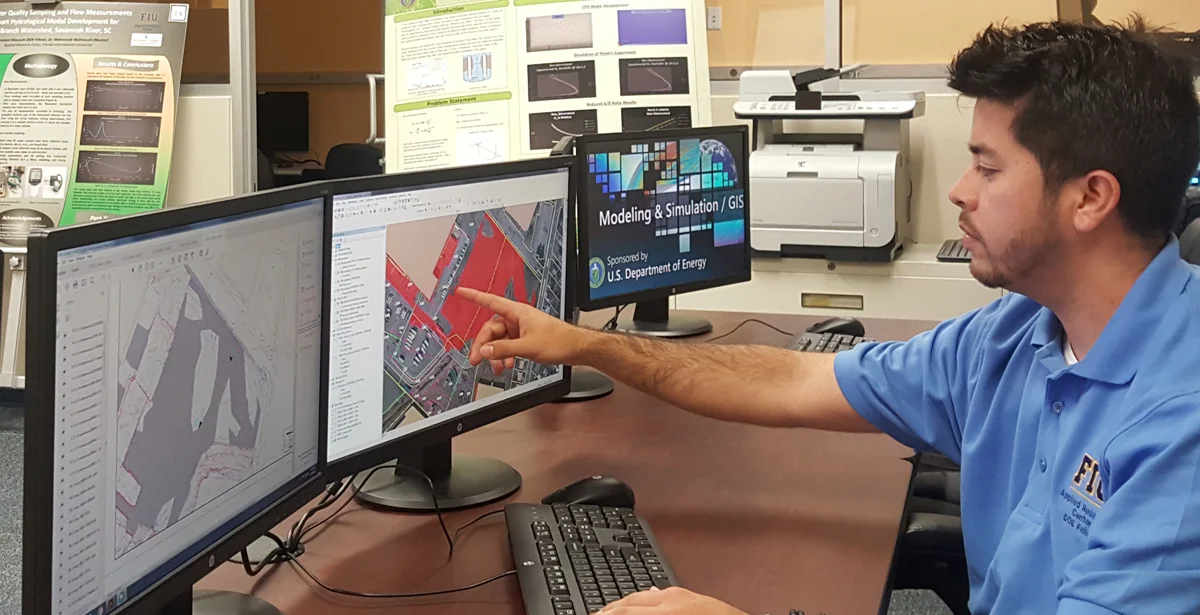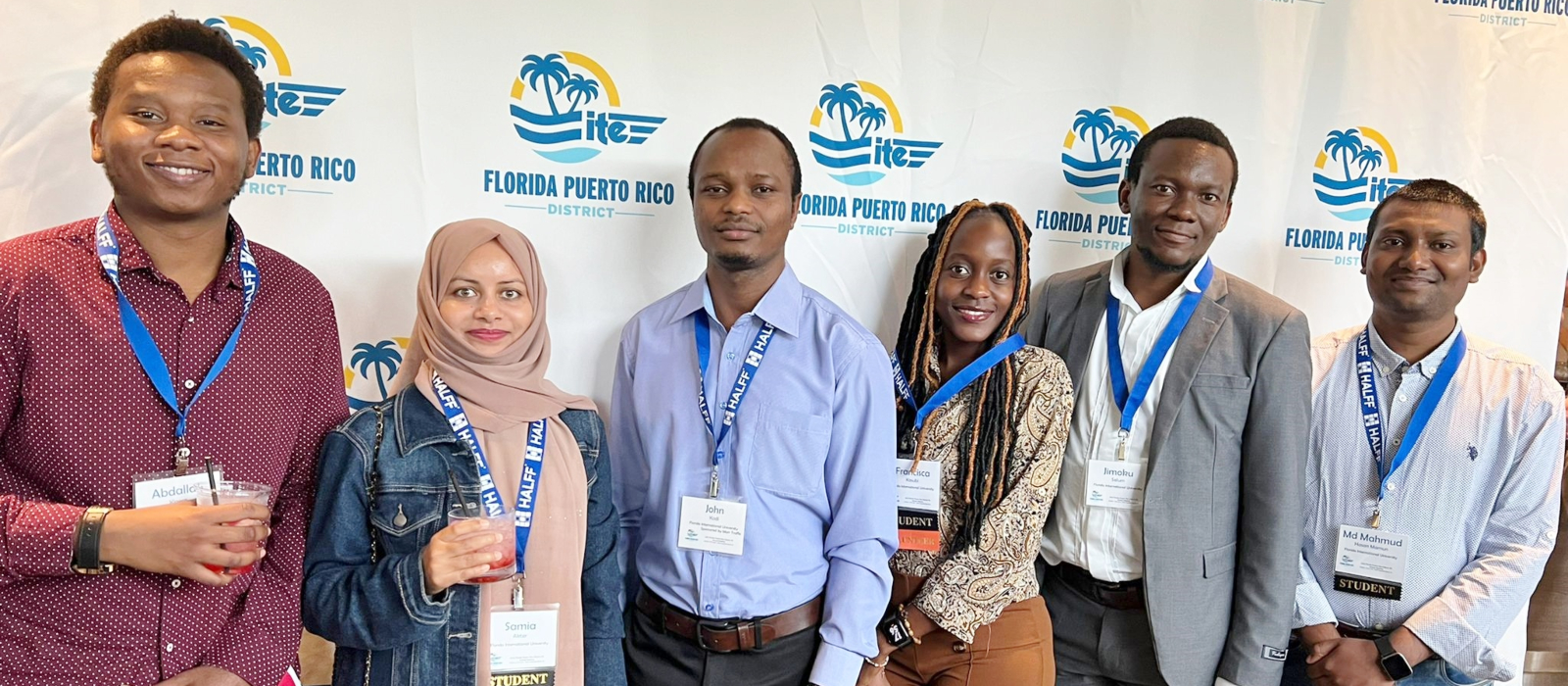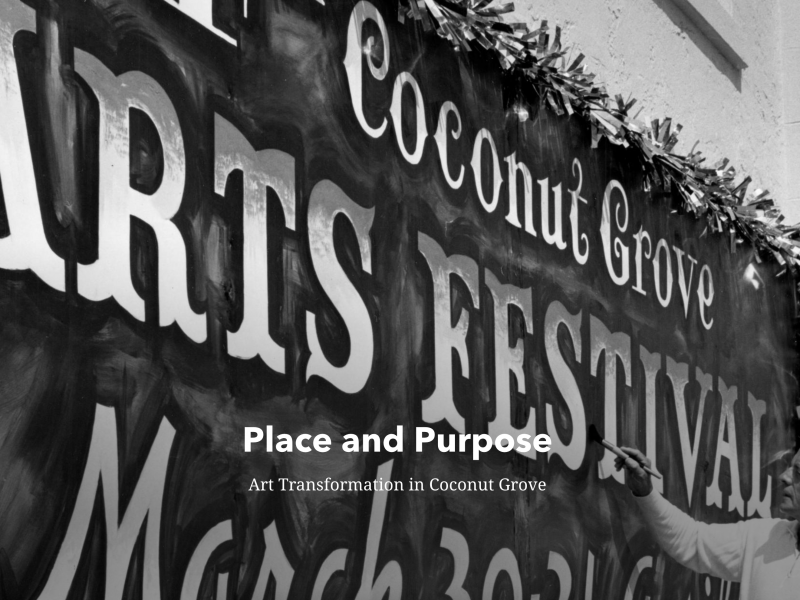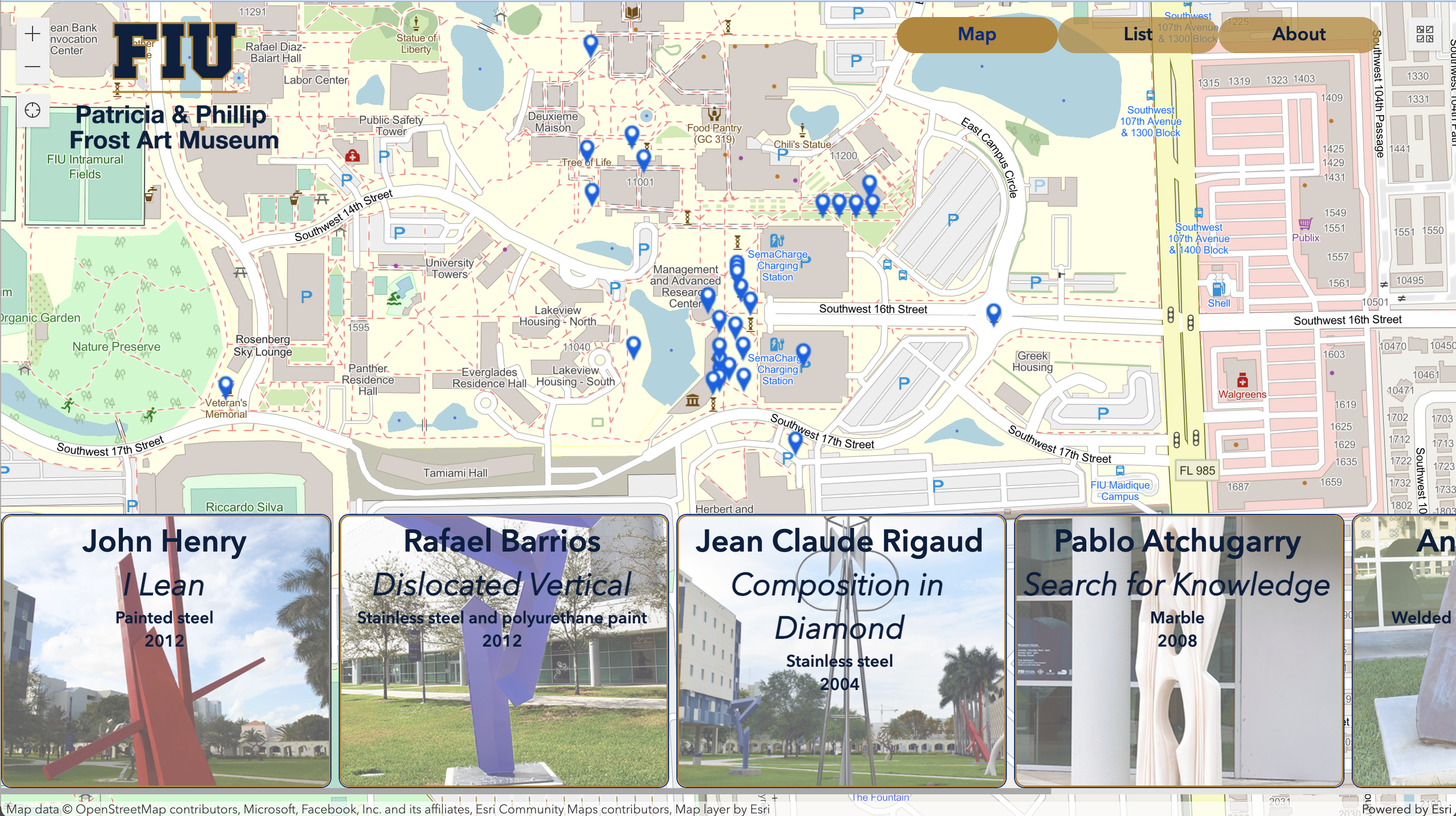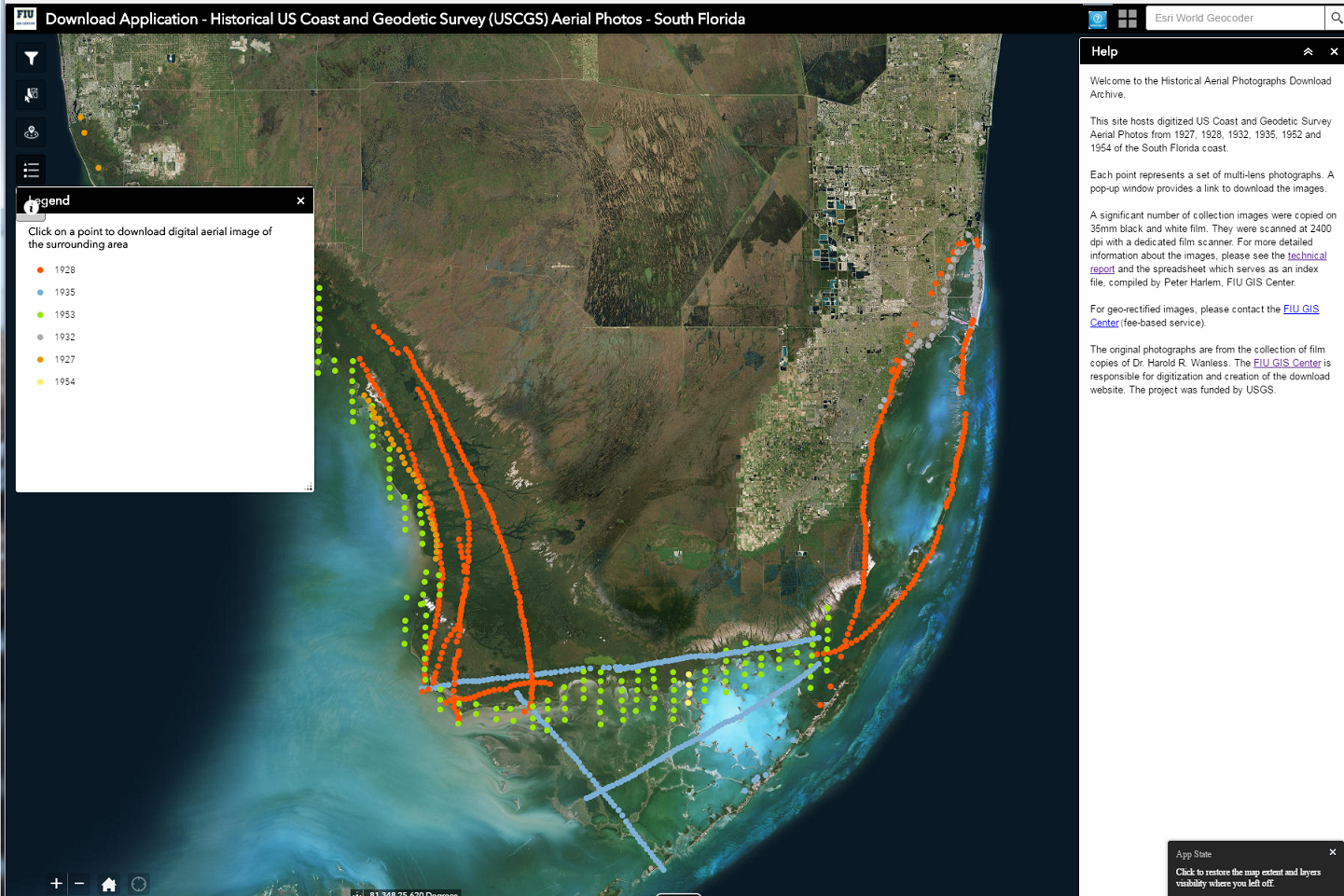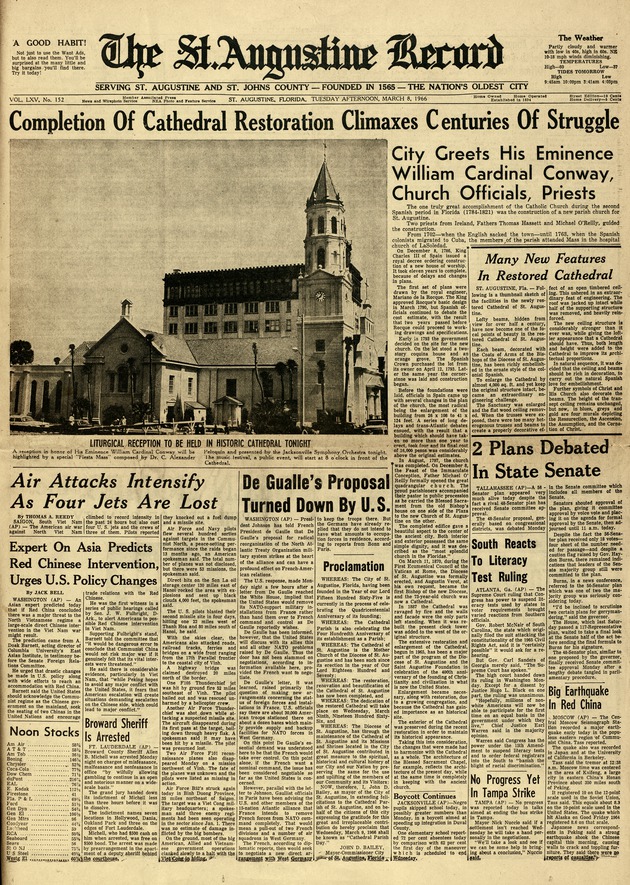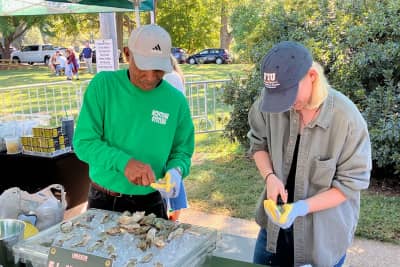Where Inspiration Meets Impact
Florida International University features the nation's top research centers and facilities dedicated to creating a more sustainable future. This includes the Institute of Environment, Sea Level Solutions Center, Extreme Events Institute, Institute for Resilient and Sustainable Coastal Infrastructure, FIU Metropolitan Center and the Wall of Wind. Our researchers are helping to create more Sustainable Cities and Communities.
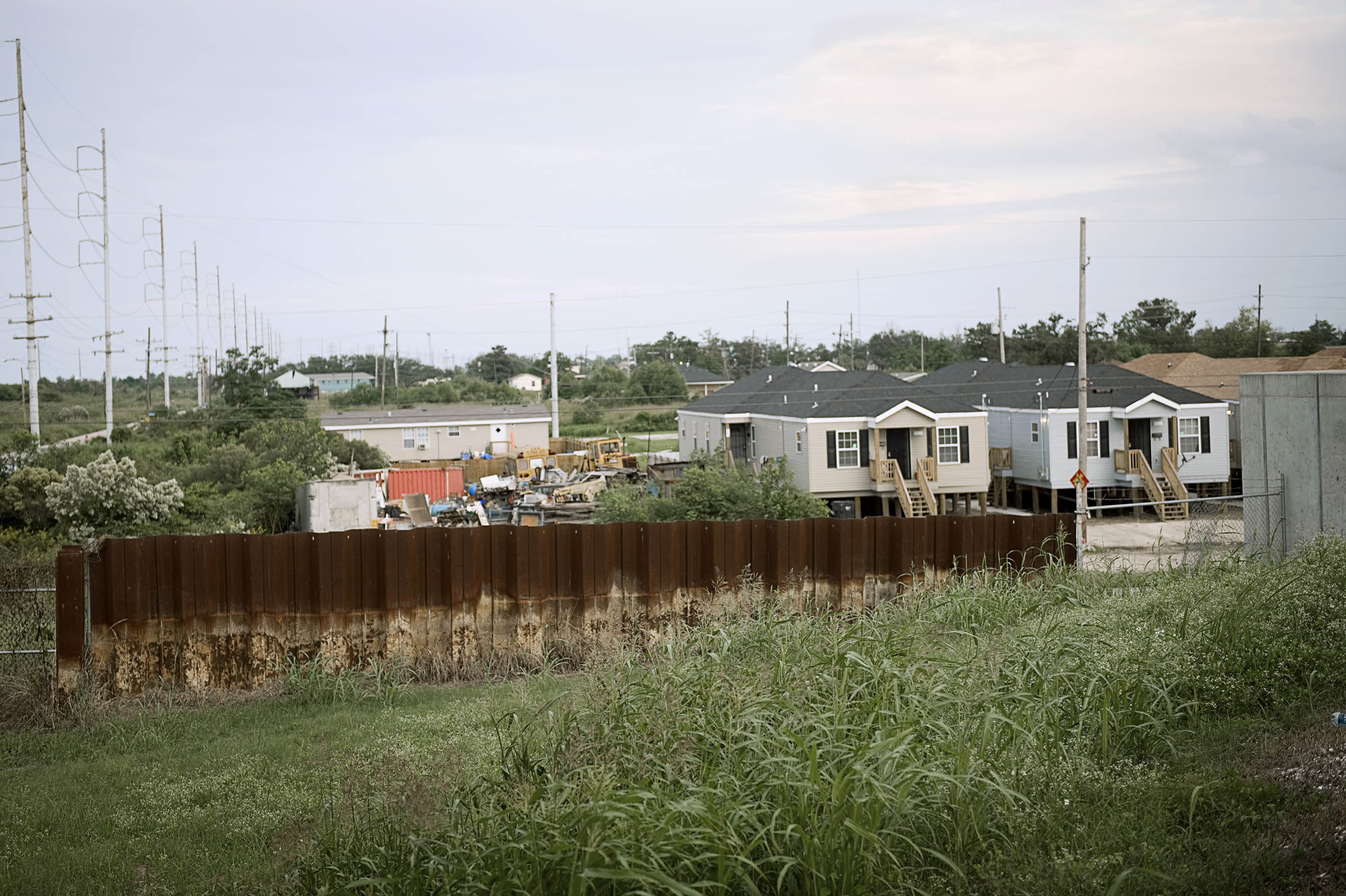
11.1 Ensure access to basic services
Across disciplines, FIU researchers are studying housing disparities, financing challenges, effects of housing reform, health effects of people living in slums and post-disaster reconstruction, all in an effort to help ensure adequate, safe and affordable housing and basic services. Find out more on FIU's efforts to ensure access to basic services.
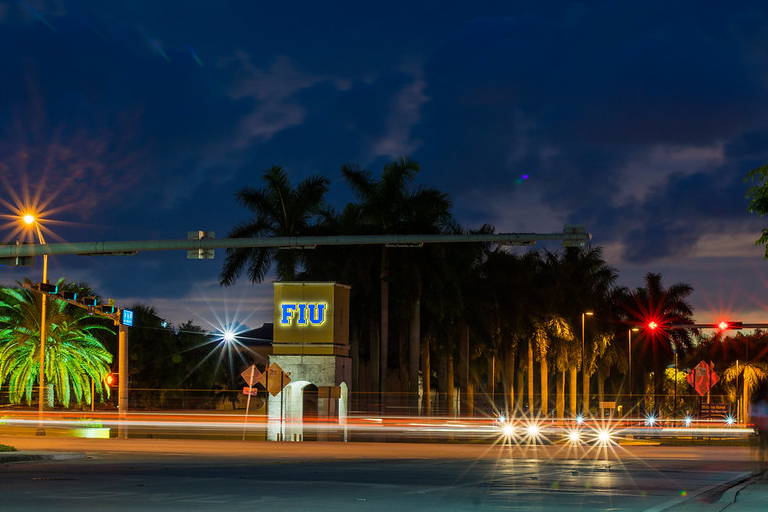
11.2 Improve transport systems
From driver safety to improved public transit systems, FIU is providing the research to improve access to safe, affordable, accessible and sustainable transport systems for all. Find out more on FIU's efforts to improve transport systems.
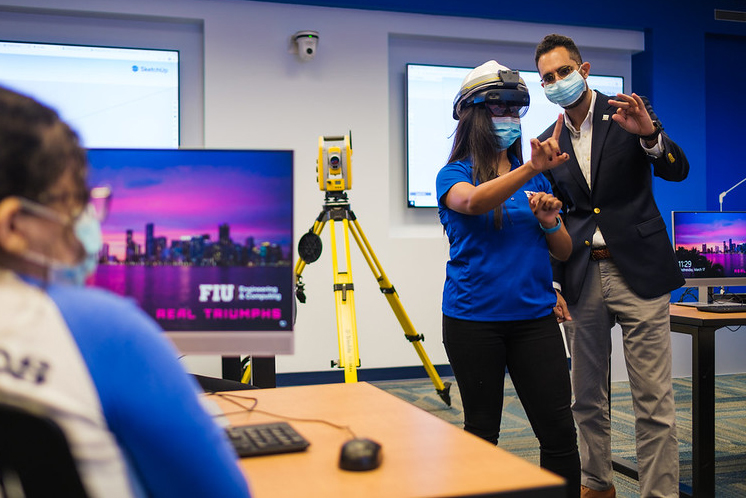
11.3 Foster inclusive and sustainable urbanization
From land-use planning to innovations in urban infrastructure, FIU researchers are working across the physical, natural and social sciences to foster inclusive and sustainable urbanization. Find out more on FIU's efforts to foster inclusive and sustainable urbanization.
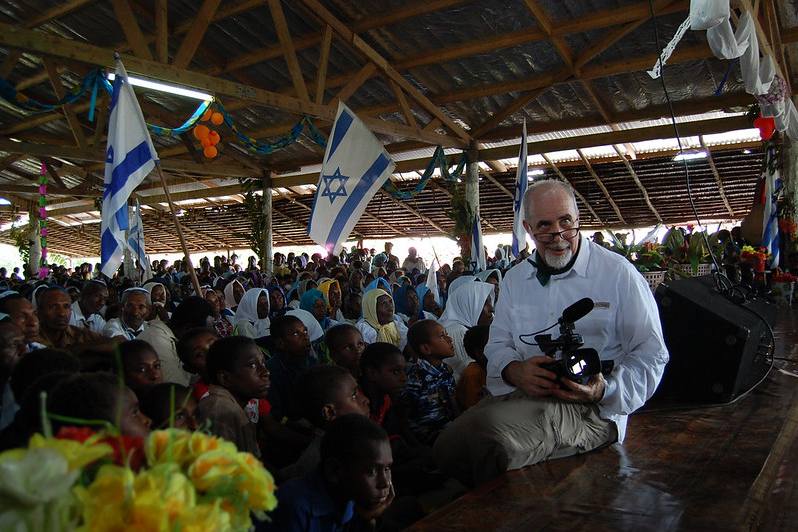
11.4 Safeguard cultural and natural heritage
From UNESCO World Heritage Sites to historic artifacts, folklore and languages, FIU is working to preserve and promote the cultural and natural heritages of diverse communities throughout the world. Find out more on FIU's efforts to safeguard cultural and natural heritage.
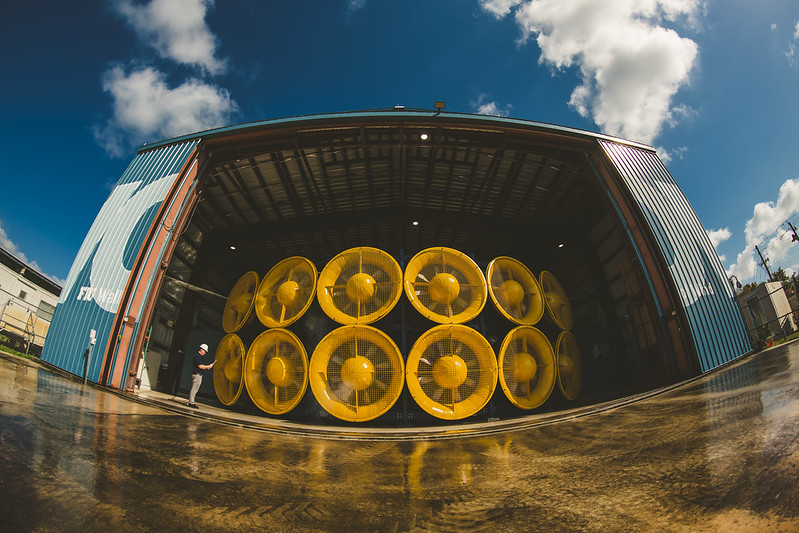
11.5 Reduce risks of natural disasters
From fast-moving cyclones to the slow-moving threat of sea level rise, FIU is a global leader for solutions-centered research across disciplines and covering all aspects of natural disasters including climate change, hurricanes, earthquakes, heat waves, cold spells, droughts, floods, sinkholes, wildfires and more. Find out more on FIU's efforts to reduce risks of natural disasters.
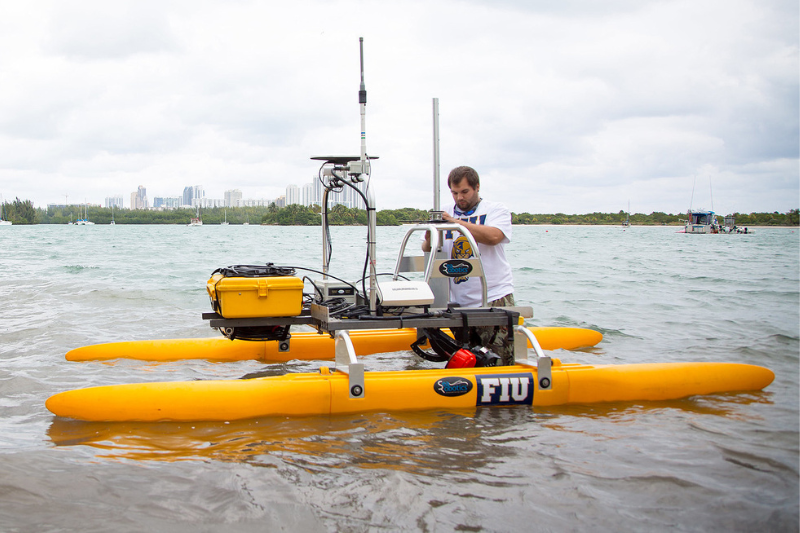
11.6 Reduce adverse environmental impacts
Air quality initiatives, water quality management and solid waste management are key areas of focus for FIU researchers. We are working to improve environmental conditions and reduce the adverse effects of environmental impacts on people. Find out more on FIU's efforts to reduce adverse environmental impacts.
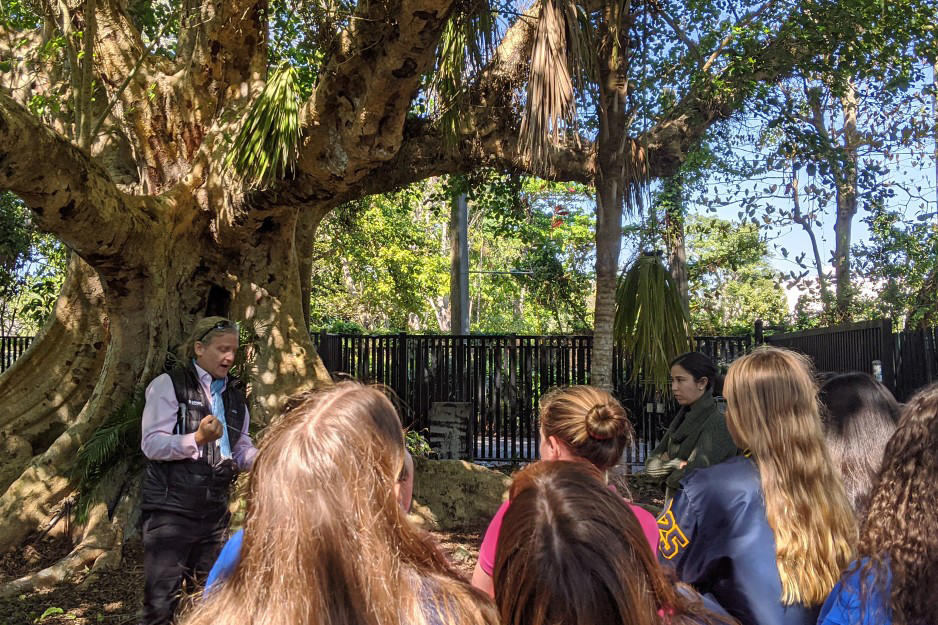
11.7 Ensure access to open spaces
FIU faculty and students specialize in the design and research of landscape architecture, land reclamation, outdoor recreation, urban tree canopies and vegetation, urban farming and neighborhood greenness to foster greater access to green spaces. Find out more on FIU's efforts to ensure access to open spaces.
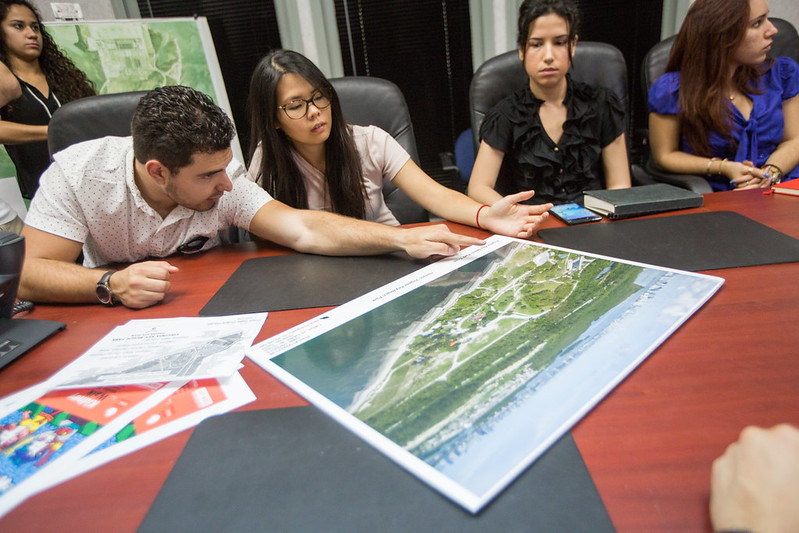
11.a-c Support sustainable urbanization
As the state of Florida's University of Distinction for Environmental Resilience, FIU is working with governments and community organizations to develop and implement solutions-centered initiatives focused on Sustainable Cities and Communities. Find out more on FIU's efforts to support sustainable urbanization.
Target 11.1 Ensure access to basic services
By 2030, ensure access for all to adequate, safe and affordable housing and basic services and upgrade slums
- FIU Metropolitan Center
FIU’s Metropolitan Center provides technical services to communities in the areas of economic development, housing, transportation, and land use planning. Center researchers take into account the unique needs of individual communities while adhering to recognized methodologies for data analysis and reporting. The center houses the ongoing South Florida Regional Database Project, which includes asset mapping, best practice research, and full in-house Remote Sensing and Geographic Information Systems capabilities. The center is a Census Information Center (CIS), which allows for early access to release data and data with restricted use.
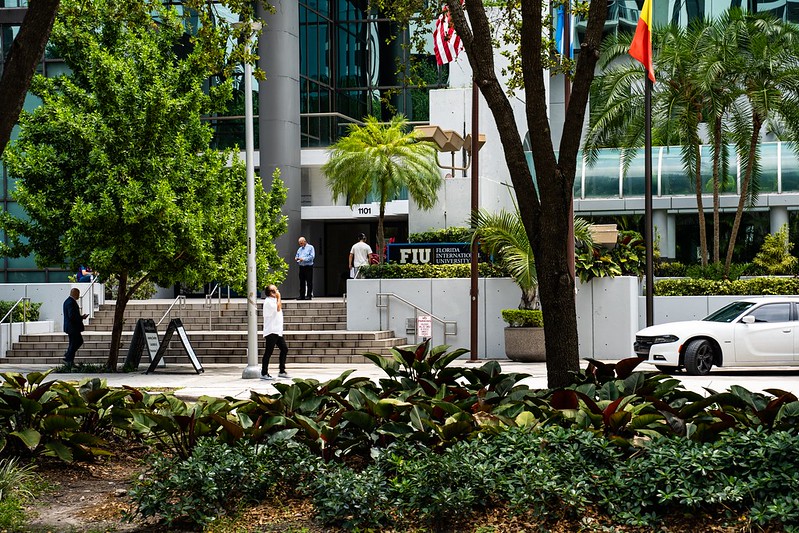
- Miami-Dade County Affordable Housing Needs Assessment
The FIU Metropolitan Center’s Miami-Dade County Affordable Housing Needs Assessment provides a current market perspective on the key demand and supply factors impacting the production and availability of affordable housing in Miami-Dade County and its municipalities. The insight provided by this research provides policymakers and the public with a detailed background on these key market factors and conditions through a data-driven platform upon which the policy recommendations of the subsequent Miami-Dade County Affordable Housing Blueprint can be implemented on both a short- and long-term basis. The Needs Assessment has been written to help expand the terms of the housing debate — to recognize that affordable housing is also critical to Miami-Dade County’s economic resilience and the quality of life of its residents.
In the post-recession economic recovery period since 2012, significant changes have occurred that have impacted rental housing supply and demand and overall affordability in Miami-Dade County. The contributing factors and conditions include a trend toward high-end, multi-family housing development, a lack of affordable housing production, low vacancy rates, and depressed household incomes. Escalating rent prices fueled by a rental housing shortage are significantly impacting working families and households. The vast preponderance of county workers earn wages in service sector occupations, including retail trade, leisure and hospitality, and educational and health services. The household incomes of these service sector workers limit housing choices to affordable rental housing opportunities, where available. The Miami-Dade County Affordable Housing Needs Assessment provides a clear understanding of the scope and scale of the county's affordable housing issues.
- Little Haiti Community Needs Assessment
The FIU Metropolitan’s Center’s Little Haiti Housing Needs Assessment provides a current market perspective on the key demand and supply factors impacting the production and availability of affordable housing in the Little Haiti Neighborhood of Miami. A basic premise of all housing markets is the need to create and maintain a spectrum of housing choice and opportunity for local residents. This axiom establishes that housing choice and needs differ in most communities due to a variety of factors including: household income, population age, proximity of employment and mere preference. A spectrum of owner and rental housing choice and opportunity is particularly important in supporting the range of income groups that reside in the city. An understanding of the shifting demands for housing is critical for the creation of effective housing policies and strategies. The increasing demand for worker housing has magnified the importance of providing a wide spectrum of owner and renter choice and opportunity with respect to affordability, location and access to jobs.
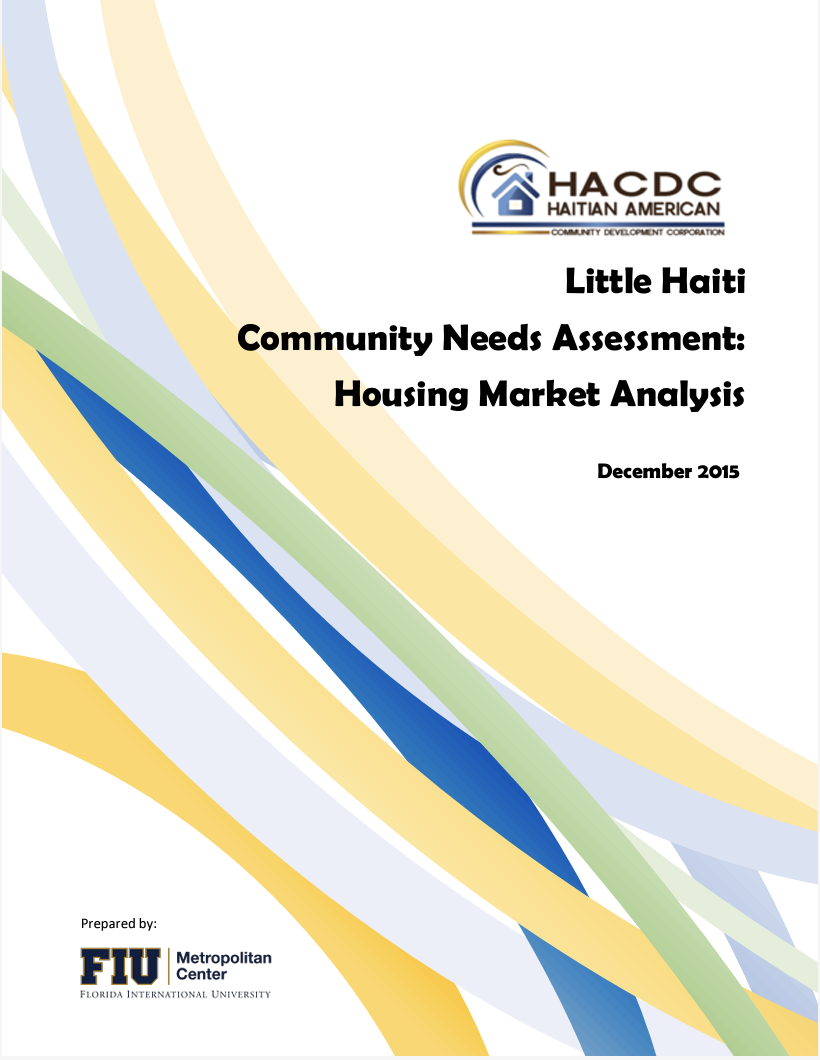
- Beracha, Hardin and Johnson Housing Affordability Index
The Beracha, Hardin and Johnson Housing Affordability Index, published quarterly by the FIU College of Business’s Hollo School of Real Estate, measures the affordability of residential properties in Miami-Dade, Broward and Palm Beach counties. The findings are based on average property prices relative to median household income in each county, as well as average mortgage payments as a percentage of income. Income data comes from the Federal Reserve. The index provides an overall health assessment of the current housing market and provides valuable insight for home sellers and buyers in South Florida.
- REact Real Estate Conference
Annually, the FIU College of Business’s Hollo School of Real Estate hosts the REact Real Estate Conference, which focuses on how the public and private sectors are working together to promote the sustainable growth of the South Florida real estate and hospitality industries which also enhancing a sense of community. A favorable business environment and the diffusion of remote work have converged to turbo-charge certain real estate and technology investment trends that were already manifesting in Miami prior to the COVID-19 pandemic. Growth has exploded in Miami as it has become home to an ever-expanding roster of renowned hedge-funds, family-offices, private equity, and high profile PropTech and FinTech firms. Yet, growth has its challenges. The conference focuses on managing growth and preserving community.
- FIU Jerome Bain Real Estate Institute
Research supported by the FIU's Jerome Bain Real Estate Institute is both theoretical and applied with a strong focus on solving current industry problems. The institute works with the globally recognized faculty in FIU's College of Business to provide meaningful analysis and research. The real estate faculty’s research is published in the highest levels of academic journals and this research is recognized on the global stage.
Target 11.2 Improve transport systems
By 2030, provide access to safe, affordable, accessible and sustainable transport systems for all, improving road safety, notably by expanding public transport, with special attention to the needs of those in vulnerable situations, women, children, persons with disabilities and older persons
- Institute for Resilient and Sustainable Coastal Infrastructure
FIU's Institute for Resilient and Sustainable Coastal Infrastructure identifies engineering solutions for challenges faced by aging infrastructure and develops innovative and economical technologies for the creation of resilient and sustainable communities. The economic prosperity of the United States is closely related to the health of the nation’s infrastructure, which includes aviation, bridges, dams, waterways, ports, rail, transportation and roadways. The institute is an umbrella organization that incorporates bridge engineering, the U.S. Department of Transportation-funded University Transportation Center, and the Lehman Center for Transportation Research.
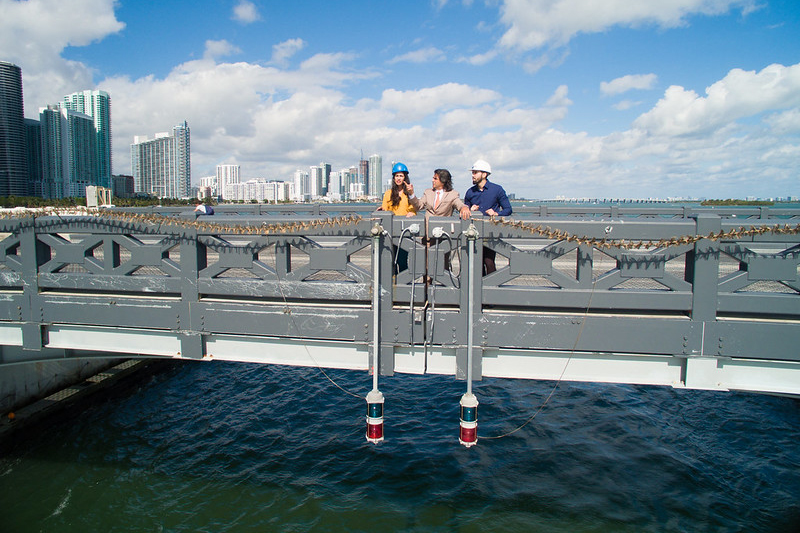
- Transportation Landscape of South Florida Report
FIU's Metropolitan Center has conducted an assessment of the Transportation Landscape of South Florida. The region's declining inflation-adjusted wages, high cost of living, and significant immigrant population indicate a need for increased public transit. However, the region’s geographical sprawl, conservative political economy, political fragmentation, and low education attainment are likely detractors. FIU's review of South Florida’s public transit institutional framework reveals multiple agencies responsible for planning, financing and delivering public transit. These agencies produce and update long-range plans. However, they lack concrete performance metrics, suffer from co-dependent rollout, and lack an overarching dedicated regional funding stream. Public transit ridership is declining across South Florida. But growing ridership on the I-95 Express buses suggests timely, frequent, and accessible transit may wean drivers from their autos—a difficult task in the U.S. and around the world.
The research provides insight into how South Florida could develop a comprehensive and sustainable public transit system. The report suggests employers and elected officials should encourage transit usage as means to improved quality-of-life for the region’s residents. The report also suggests a broader approach to public policies in terms of land use, real estate development and access to economic opportunities. Comprehensive solutions to South Florida’s transportation challenges will require cohesive planning and implementation efforts that go beyond just engineering options, technology solutions and typical transit operation measures such as cost and timeliness, but incorporate considerations for community and economic development.
- Geographic Information Systems Center
FIU's Geographic Information Systems Center offers expertise in geospatial web technologies, geospatial data analysis, visualization and modeling, geospatial data management and remote sensing applications. The center offers a wealth of geo-datasets, including high resolution imagery data and historical coastal maps and data to research faculty and students as well as community partners including the Florida Department of Transportation and the South Florida Water Management District. At the federal level, partners include the U.S. Department of Agriculture, the Environmental Protection Agency, the National Park Service, the U.S. Geological Survey, the National Endowment for the Humanities and USAID.
- Pedestrian Safety
FIU is committed to improve pedestrian safety through various projects and collaborations at the local, state and federal levels as well as through research abroad.
The FIU Geographic Information Systems Center leads a series of transportation planning projects that promote pedestrian and bicycle safety. The College of Engineering and Computing at FIU recently launched a comprehensive study to improve pedestrian safety on state roads in Florida. Sponsored by the Florida Department of Transportation, the project is designed to identify pedestrian high crash locations, analyze pedestrian crash causes and patterns, and recommend proven effective countermeasures to address specific crash causes.
Our researchers are looking at various aspects of pedestrian safety including understanding how street crossing situations affect younger and older adults' gait to create evidence-based policies, education and training in urban planning and help establish appropriate times for older pedestrians to cross streets safely.
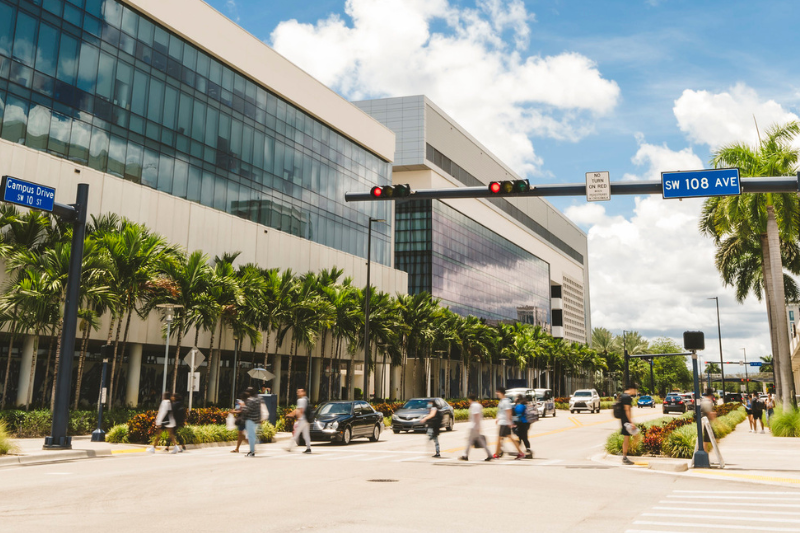
- Lehman Center for Transportation Research
The FIU Lehman Center for Transportation Research is committed to conducting research and training to improve transportation mobility and safety, and educating a multidisciplinary workforce to plan, manage, and implement transportation systems. The Lehman Center is the only transportation center of its kind in South Florida — home to about a third of Florida’s 18 million population.
The center leads research in the areas of public transportation, GIS, transportation demand modeling, land use planning, intelligent transportation systems, transportation safety, traffic simulation, and transportation databases. The center also leads various projects in the areas of Intelligent Transportation Systems, Public Transit, Highway Safety and Transportation Planning. The Lehman Center is Florida’s leading center for developing innovative computer-based systems for transportation engineering applications, many of which are available for public access.
- Driving Simulation Lab
Sharing a commitment to advancing research and application of driver safety, FIU’s College of Engineering and Computing, Nicole Wertheim College of Nursing and Health Sciences, and the Division of Research have collaborated to develop a premier center dedicated to driver safety, human factors and related civil engineering projects. The Driving Simulation Lab is the only facility of its kind in South Florida.
The Driving Simulation Lab builds upon the research conducted by the FIU Lehman Center for Transportation Research providing access to a high-fidelity driving simulator that interfaced with an actual automobile provides a realistic setting for innovative transportation-related research. The interactive driving simulator has a 135-degree driver field-of-view integrated with an active steering and pedal system. The driving simulator provides opportunities for more sophisticated transportation research to improve the safety and mobility of travelers. Additionally, the lab facilitates multidisciplinary efforts to address public safety, driving performance, driver behavior, transportation, vehicle technologies and their effect on driving, congestion, and individual and public safety.
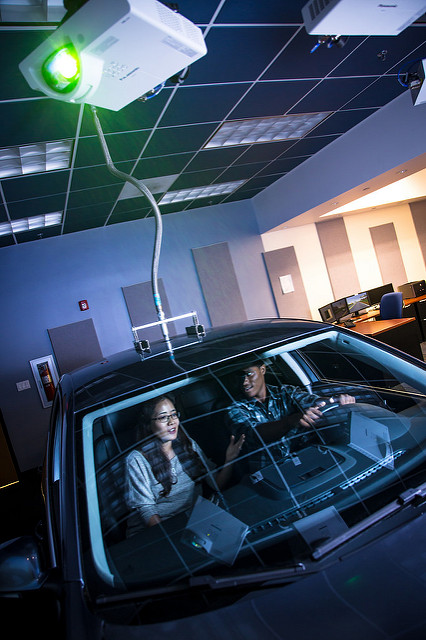
- Institute of Transportation Engineers Student Chapter
FIU’s student chapter of the Institute of Transportation Engineers tackles important transportation concerns including improving pedestrian or bicycle safety, highway lighting or signage, studying the different types of barriers used in Florida’s express lanes or researching why wrong-way accidents occur.
The students participate in the Campus Peer-to-Peer Campaign — a pedestrian and bicycle safety education program sponsored by the Florida Department of Transportation. The campaign's goal is to foster safer campuses, provide peer-to-peer safety education and promote safe travel behaviors. Florida International University along with the University of South Florida, Florida Gulf Coast University, Florida State University, the University of Central Florida, the University of Florida and others have partnered to inform their campuses and communities about safety initiatives through the campaign.
For their efforts, FIU's chapter received the Best Student Chapter award in 2022.
- Transportation Engineering Program
FIU’s offers a Master of Science in Civil Engineering with a track in transportation engineering. This program is considered among the most comprehensive in the nation in terms of the number of courses offered and its multimodal nature. In addition to traditional courses in traffic engineering and transportation planning, the program offers multiple courses in public transportation, air transportation, maritime transportation, and advanced technologies. We are also very proud of our ability to serve the working professionals in the transportation community. Typically, about a third of our students are full-time professionals who seek to advance their education and careers with us.
The program offers courses in the areas of transportation planning, traffic engineering, public transportation, transportation materials and advanced computer applications. For a full list of courses offered in our engineering transportation graduate degree visit the Lehman Center for Transportation Research website.
Target 11.3 Foster inclusive and sustainable urbanization
By 2030, enhance inclusive and sustainable urbanization and capacity for participatory, integrated and sustainable human settlement planning and management in all countries
- Institute of Environment
FIU's Institute of Environment is taking the uncertainty out of long-term sustainability. A comprehensive solutions center, the institute is dedicated to combating environmental crises that devastate ecosystems, disrupt communities and destroy natural resources. A key player in global environmental research, institute researchers have engaged in investigations and collaborations in more than 60 countries.
Working with local and international partners and government agencies, the institute's efforts have led to expanded protections for endangered species; improved sanitation and access to clean water; increased community resilience across the globe; and adaptive management of terrestrial, freshwater, coastal and marine resources. We are addressing both current and unprecedented future threats of environmental change, providing data-driven solutions to society's greatest and most urgent challenges.
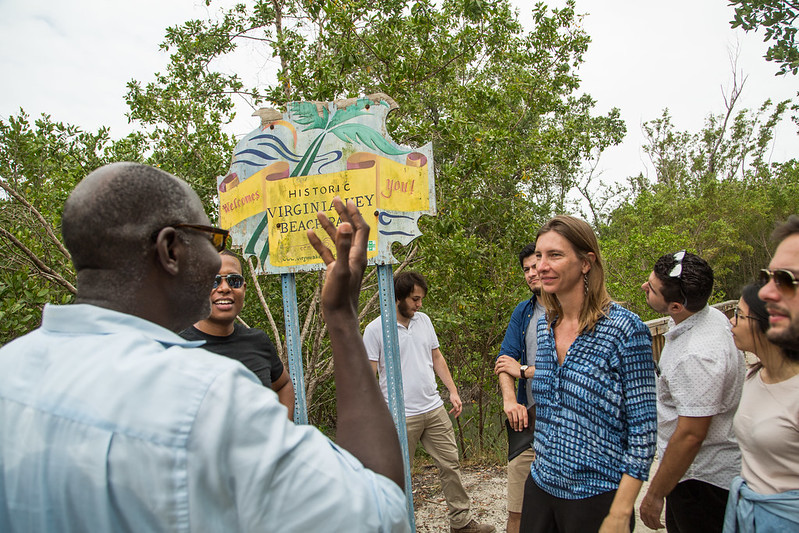
- Geographic Information Systems Center
FIU's Geographic Information Systems Center offers expertise in geospatial web technologies, geospatial data analysis, visualization and modeling, geospatial data management and remote sensing applications. The center offers a wealth of geo-datasets, including high resolution imagery data and historical coastal maps and data to research faculty and students as well as community partners.
With funding from the U.S. Environmental Protection Agency, the center is working to expand upon existing geo-spatial web frameworks and related guidelines often used to site living shoreline installations by integrating an additional suite of parameters designed to optimize resilience to sea level rise. The goal is to be able to instantly generate dynamic maps, infographics, charts and summary statistics that can enhance how caostal mangers analyze suitability of potential living shoreline locations and optimize resilience to sea leve rise.
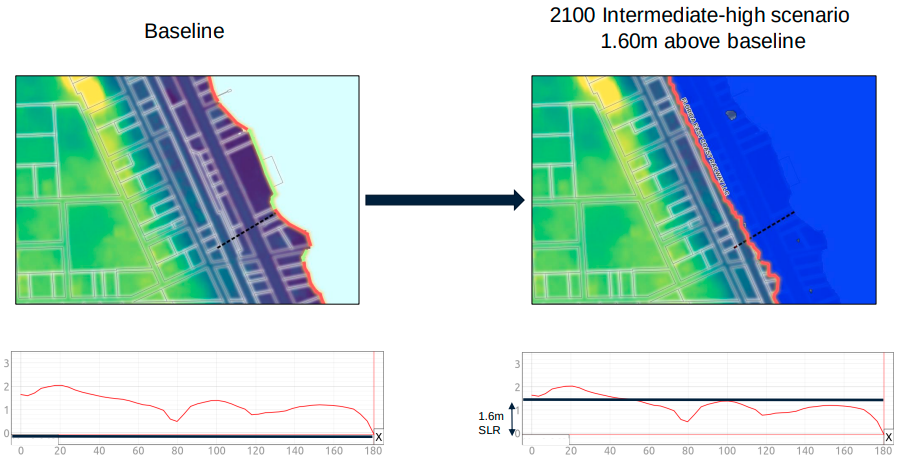
- The WISE Research Group
The Water Resources Integrated Modeling and Smart Control of Extreme Weather Impacts (WISE) research group is working to support sustainable cities and communities through research in the areas of smart and resilient flood control, mitigation of violent geysers (air-water flows), optimal reservoir operation under uncertainty, sustainable stormwater management, computational hydraulics, and physical modeling of hydraulic structures.
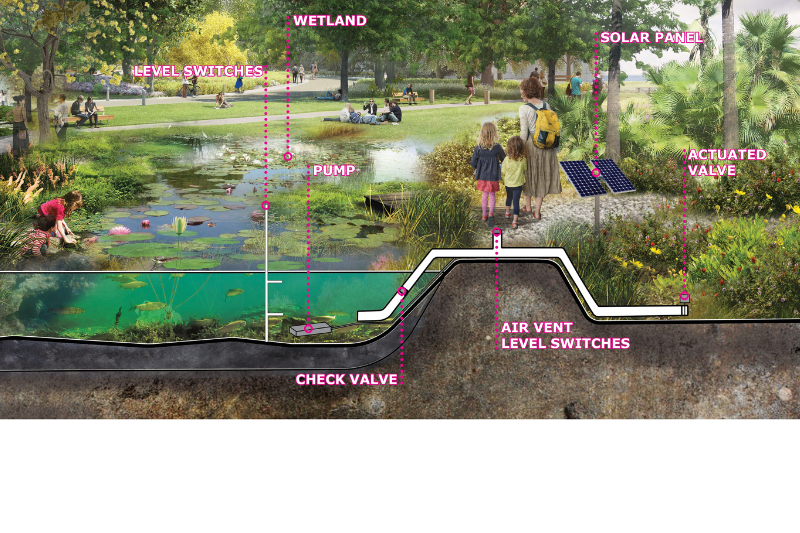
Target 11.4 Safeguard cultural and natural heritage
Strengthen efforts to protect and safeguard the world’s cultural and natural heritage
- The Wolfsonian
The Wolfsonian–FIU is a museum that explores the inventive and provocative character of the modern world. With more than 200,000 objects in its permanent collection, The Wolfsonian, contains a vast universe of ideas — household appliances that sped the pace of work; designs that bridged cultures; architectural plans fueled by ambition; and propaganda that helped turn the tides of war.
The museum’s core focus is material from Europe and the United States, extending to regions of Latin America, Asia and Africa. Located in South Beach’s historic Art Deco District, the museum offers free admission to Florida residents, members of the FIU community, visitors with disabilities and young children.

- Geographic Information Systems Center
FIU's Geographic Information Systems Center offers expertise in geospatial web technologies, geospatial data analysis, visualization and modeling, geospatial data management and remote sensing applications which are used to create historical archives. The center created a storymap to accompany an exhibit at the FIU Patricia and Philip Frost Art Museum. The storymap allows viewers to explore the locations that played an important role in the art transformation of Coconut Grove.
The center offers a wealth of geo-datasets, including high resolution imagery data and historical coastal maps and data to research faculty and students as well as community partners including the Florida Department of Transportation and the South Florida Water Management District. At the federal level, partners include the U.S. Department of Agriculture, the Environmental Protection Agency, the National Park Service, the U.S. Geological Survey, the National Endowment for the Humanities and USAID.
- Frost Art Museum Virtual Sculpture Garden
An interactive map of the Patricia & Phillip Frost Art Museum Sculpture Garden allows visitors to explore the open-space art installations virtually. Developed by FIU's Geographic Information Systems Center, the guide can be used on desktop or mobile devices. When using the mobile version, visitors on FIU's Modesto A. Maidique Campus can access the map and read about the history and artists of the sculptures they see in person.
- U.S. Coast and Geodetic Survey Aerial Photos Archive
The FIU Geographic Information Systems Center developed a web application to host digitized U.S. Coast and Geodetic Survey Aerial Photos from 1927, 1928, 1932, 1935, 1952 and 1954 of the South Florida coast. The project was funded by the U.S. Coast and Geodetic Survey. The site shows the location of the images with each point representing a set of multi-lens photographs. A pop-up window provides a link to download the images. A significant number of collection images were copied on 35mm black and white film.
- City of St. Augustine Colonial Heritage Project
The FIU Geographic Information Systems Center created an interactive web interface for the digital version of St. Augustine’s archival repositories which have been previously inaccessible to researchers worldwide. The digital archive supports research in a broad range of subjects: Florida and U.S. history, Spanish colonies, Native Americans, slavery, exploration, architecture and urban planning, social and economic development, missionary work, military defenses and warfare.
Currently, more than 25,000 photographs, maps, overlays of the city, architectural drawings, government records, transcriptions of key Spanish documents, and archaeology site summaries have been digitized, with a majority of them geo-located. Compiled in pertnership with the University of Florida Libraries, the collection is available to a variety of researchers, including historians, archaeologists, architects, historic preservationists and those in the digital humanities. The project tells St. Augustine’s unique story of colonial heritage and makes it available on a global scale.
- City of Coral Gables Virtual History Project
Florida International University partnered with the City of Coral Gables to create a geospatially-enabled Virtual Historic City. With this tool, users may navigate to any point in the city in a selected time period (e.g., the Biltmore Hotel from the 1920s to 1940s) and experience the city as it was, through a wide variety of cultural artifacts and textual materials. A virtual walking tour of Coral Gables was also created, which includes an audio narration and 3D simulations providing the façades of historic buildings and landscapes. Students, educators, historians, public policy administrators, architects, sociologists, environmental analysts, urban planners and the general public can explore over 8,000 historical documents, photographs, oral histories and maps that have been spatially registered to their relevant locations and time.
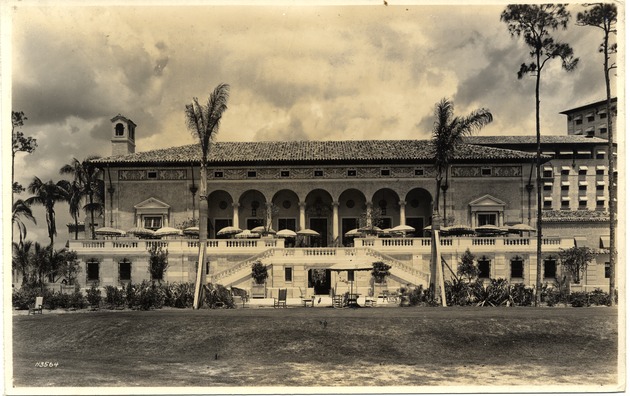
Biltmore Country Club, Coral Gables, Fla. 1926
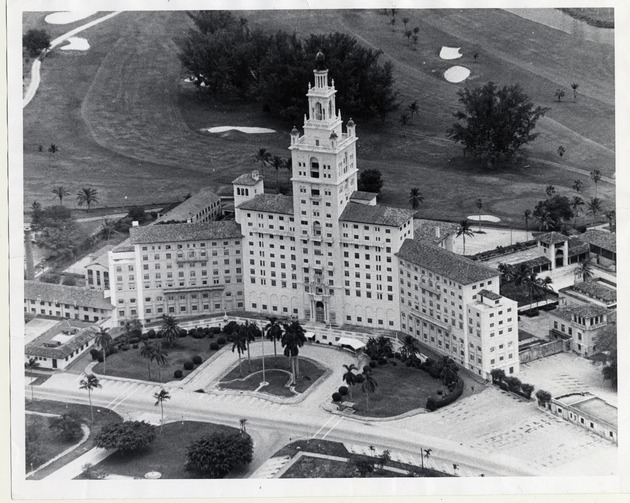
Biltmore Hotel, Coral Gables, Fla. 1970
- Global Sustainable Tourism
FIU offers a bachelor’s degree in sustainable operations in the tourism industry, its impacts on the planet, and the increasing demand for a more sustainable approach to managing hospitality and tourism businesses. This unique, fully online program is offered by the Chaplin School of Hospitality and Tourism Management in collaboration with the Department of Earth and Environment in the College of Arts, Sciences & Education.
Students pursuing this degree acquire the knowledge and tools needed to become industry leaders in the management of sustainable tourism standards that will help protect the world’s natural and cultural resources and maintain them intact for future generations. Students will learn to apply these skills and lead through advocacy, conservation and community partnerships. Topics covered include socioeconomic, environmental and cultural impacts with respect to responsible business practices and local governance. In a nutshell, the overarching thrust of the program is to teach students how tourism can adapt to and mitigate climate change and become a key sector in the transition to low-carbon economies.
Target 11.5 Reduce risks of natural disasters
By 2030, significantly reduce the number of deaths and the number of people affected and substantially decrease the direct economic losses relative to global gross domestic product caused by disasters, including water-related disasters, with a focus on protecting the poor and people in vulnerable situations
- Extreme Events Institute
FIU's Extreme Events Institute is at the forefront of solutions-centered research and engagement for hurricanes and other extreme events. Comprising the International Hurricane Research Center and the Disaster Resilience and Climate in the Americas program, the institute is a globally involved center for research, education, and training in natural hazards and disaster-risk management. The Institute includes faculty and researchers from the social and behavioral sciences, engineering, computer science, earth and atmospheric sciences, public health, public administration, business, and architecture.
The Extreme Events Institute manages the Wall of Wind Laboratory, which was established through a State of Florida Center of Excellence, and is funded through the NSF Natural Hazards Engineering Research Infrastructure program. The EEI also developed and manages the Florida Public Hurricane Loss Model.
- Wall of Wind
The International Hurricane Research Center and FIU's College of Engineering and Computing built the full-scale Wall of Wind to test entire structures at full-scale, leading to performance-based design for hurricanes through direct correlation of wind speed with performance and damage levels.
Similar to crash testing for vehicles, the Wall of Wind can test to failure full-sized structures such as manufactured housing and small commercial structures. Current WoW projects, funded by federal and state agencies and by private industry, are offering focus and leadership in the urgently needed hurricane engineering research and education from an integrative perspective to quantify and communicate hurricane risks and losses, mitigate hurricane impacts on the built environment, and enhance sustainability of infrastructure and business enterprise, including residential buildings, low-rise commercial buildings, power lines, traffic signals and more.
The Wall of Wind is helping to build sound scientific basis for developing risk-based and performance-based design criteria, and contributing to the attainment of an international objective — achieving more sustainable coastal communities.
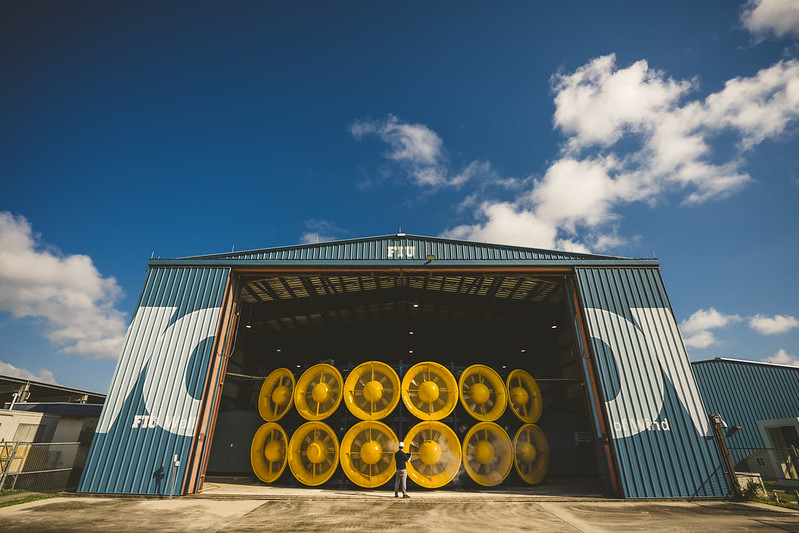
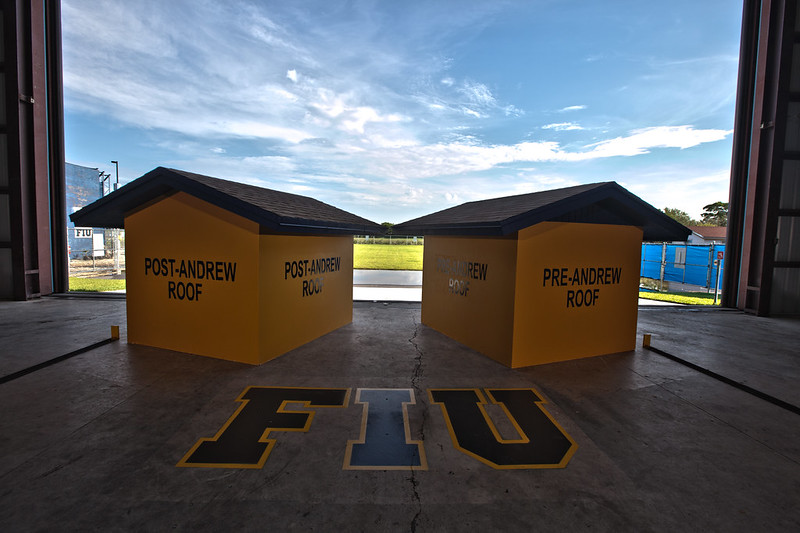
- Institute for Resilient and Sustainable Coastal Infrastructure
FIU's Institute for Resilient and Sustainable Coastal Infrastructure identifies engineering solutions for challenges faced by aging infrastructure and develops innovative and economical technologies for the creation of resilient and sustainable communities. The economic prosperity of the United States is closely related to the health of the nation’s infrastructure, which includes aviation, bridges, dams, waterways, ports, rail, transportation and roadways. The institute is an umbrella organization that incorporates bridge engineering, the U.S. Department of Transportation-funded University Transportation Center, and the Lehman Center for Transportation Research.

- Hurricane and Tropical Cyclone Forecasting
FIU's hurricane-focused research advances the science behind storms and suggests pragmatic strategies to protect human life. Their work is informing efforts at the National Hurricane Center and the U.S. Navy's Joint Typhoon Warning Center.
FIU meteorologists are investigating hurricane intensity, intensity change and structures of inner-core convection and precipitation. They are engaging satellite remote sensing techniques to study hurricane rainfall, convection, winds, and warm-core structures. As part of their work, they have developed long-term satellite-based tropical cyclone databases and used these tools to study the climatology of hurricanes and to develop algorithms for estimating current intensity and predicting rapid intensification of tropical cyclones.
FIU scientists are also working to improve existing forecast and modeling tools like the Hurricane Analysis and Forecast System. This new multi-scale operational model for tropical cyclone prediction fails to capture the intense turbulent mixing in eyewall and rainband clouds due to a poor estimation of static stability in clouds. Recent FIU research proposes a solution to this issue which could improve overall storm track and intensity predictions.
Our scientists are also tackling storm surge from these intense storms, developing a reliable model for predicting surge to assist communities in evacuation-decision strategies.
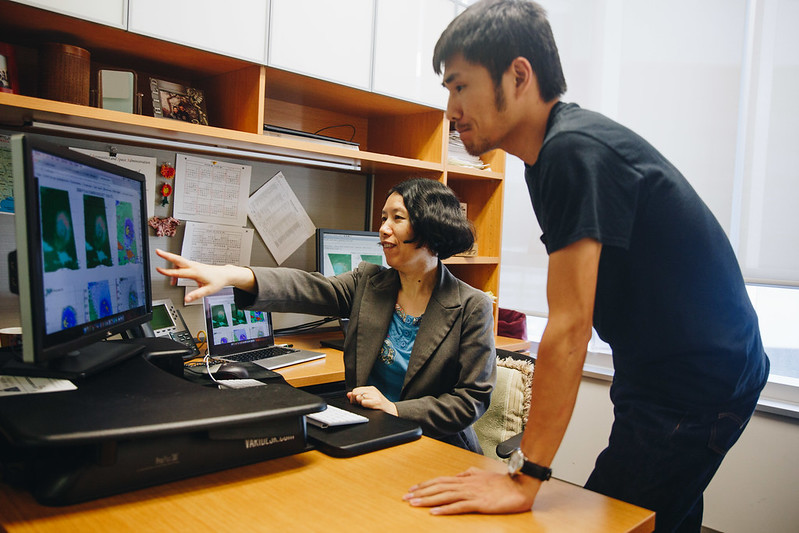
- Improving Resilience for Underserved and Neglected Populations
For decades, FIU researchers have worked to enhance the hurricane resilience of underserved and neglected populations. Recently, the United States Agency for International Development (USAID) has awarded the university nearly $8 million to address hurricane risks and develop resilience strategies in Latin America and the Caribbean — focusing on land-use management, building codes and preparedness.
For Haiti and the Dominican Republic, FIU scientists have helped develop a storm surge database that is guiding decision-making of local officials for evacuations in storm events. And the National Oceanic and Atmospheric Administration (NOAA) has funded efforts to map and forecast flooding throughout the Caribbean to improve storm surge monitoring and warning for island nations and Central American coastal areas.
Closer to home, the Andrew Mellon Foundation has supported FIU efforts to address the disproportionate impacts of hurricanes on low-income communities in South Florida. With 45 percent of the U.S. population living in hurricane-threatened states, the work being done in South Florida serves as a model for strategies all across the country.
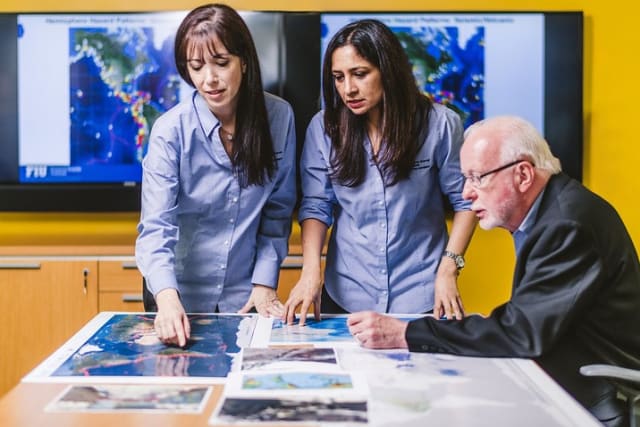
- Disaster Preparedness
FIU research is focused on building more resilient and sustainable communities through building adaptation, expanded use of technology and improved disaster planning. Our Sea Level Solutions Center is informing local governments and developers about the effectiveness of building-level adaptation strategies including cost-benefit analysis and sea level rise predictions.
Damages to infrastructure as well culturally significant historic structures pose unique challenges for communities dealing with the aftermath of a natural disaster. FIU researchers have developed a new assessment model that could improve timeliness of damage assessments and more efficiently help local officials prioritize repair efforts.
While most natural disaster are unpredictable, some, including hurricanes, offer some predictability. FIU researchers are studying storm preparation strategies including the positioning of post-storm supplies in advance of a hurricane making landfall. Their research is helping to inform local planning strategies to maximize resources and effectively serve people in affected communities after the storm.
- Florida Public Hurricane Loss Model
The Florida Public Hurricane Loss Model was developed by FIU experts in meteorology, wind and structural engineering, computer science, GIS, statistics, finance and actuarial science. It is used to assess the state’s hurricane risk to regulate windstorm insurance rates and determine fair pricing in a state that saw insurers fail after 1992’s catastrophic Hurricane Andrew.
Operated by FIU and funded by the FLorida Legislature, the model also evaluates the solubility of individual insurance companies and quantifies the economic benefits of mitigation efforts.
- Category 6 Project
Though the Saffir-Simpson Hurricane Wind Scale only goes to Category 5, FIU researchers know increasingly stronger hurricanes are impacting coastal communities. With the support of the National Science Foundation, FIU is designing the most powerful wind-water-wave testing facility in the world, capable of generating wind speeds up to 200 miles-per-hour combined with a water basin to simulate storm surge and wave action. The FIU-led project is being developed in partnership with eight other universities from across the United States.
- The WISE Research Group
The Water Resources Integrated Modeling and Smart Control of Extreme Weather Impacts (WISE) research group is working to support sustainable cities and communities through research in the areas of smart and resilient flood control, mitigation of violent geysers (air-water flows), optimal reservoir operation under uncertainty, sustainable stormwater management, computational hydraulics, and physical modeling of hydraulic structures.

Did you know?
The National Hurricane Center is located on Florida International University's campus. The center is responsible for tracking and predicting tropical weather systems for the United States, providing critical information to help Americans stay safe.
Target 11.6 Reduce adverse environmental impacts
By 2030, reduce the adverse per capita environmental impact of cities, including by paying special attention to air quality and municipal and other waste management
- Soil and Water Quality
Rapid urbanization, pollution and frequent flooding are adversely impacting solid and water quality in cities throughout the United States. FIU research is investigating these impacts including effects for the natural environment, health implications for residents and impacts on water quality. Their research is helping to inform mitigation strategies for local governments.
- Policy Research
Scholars within FIU’s Jack D. Gordon Institute for Public Policy are researching reporting in subsidies of Chinese fisheries and drops in domestic subsidies spending. Our marine scientists are conducting international research on challenges caused by bycatch — the unintended capture and discarding of marine animals that fishermen cannot sell. In recent years, these scientists have advocated for solutions to bycatch including better methods for fishing and the denial of subsidies to repeat offenders.
Target 11.7 Ensure access to public spaces
By 2030, provide universal access to safe, inclusive and accessible, green and public spaces, in particular for women and children, older persons and persons with disabilities
- Global Sustainable Tourism
FIU offers a bachelor’s degree in sustainable operations in the tourism industry, its impacts on the planet, and the increasing demand for a more sustainable approach to managing hospitality and tourism businesses. This unique, fully online program is offered by the Chaplin School of Hospitality and Tourism Management in collaboration with the Department of Earth and Environment in the College of Arts, Sciences & Education. Students pursuing this degree acquire the knowledge and tools needed to become industry leaders in the management of sustainable tourism standards that will help protect the world’s natural and cultural resources and maintain them intact for future generations. Students will learn to apply these skills and lead through advocacy, conservation and community partnerships. Topics covered include socioeconomic, environmental and cultural impacts with respect to responsible business practices and local governance. In a nutshell, the overarching thrust of the program is to teach students how tourism can adapt to and mitigate climate change and become a key sector in the transition to low-carbon economies.

Targets 11.a-c Support sustainable urbanization
Support positive economic, social and environmental links between urban, peri-urban and rural areas by strengthening national and regional development planning
By 2020, substantially increase the number of cities and human settlements adopting and implementing integrated policies and plans towards inclusion, resource efficiency, mitigation and adaptation to climate change, resilience to disasters, and develop and implement, in line with the Sendai Framework for Disaster Risk Reduction 2015-2030, holistic disaster risk management at all levels
Support least developed countries, including through financial and technical assistance, in building sustainable and resilient buildings utilizing local materials
- Global Sustainable Tourism
FIU offers a bachelor’s degree in sustainable operations in the tourism industry, its impacts on the planet, and the increasing demand for a more sustainable approach to managing hospitality and tourism businesses. This unique, fully online program is offered by the Chaplin School of Hospitality and Tourism Management in collaboration with the Department of Earth and Environment in the College of Arts, Sciences & Education.
Students pursuing this degree acquire the knowledge and tools needed to become industry leaders in the management of sustainable tourism standards that will help protect the world’s natural and cultural resources and maintain them intact for future generations. Students will learn to apply these skills and lead through advocacy, conservation and community partnerships. Topics covered include socioeconomic, environmental and cultural impacts with respect to responsible business practices and local governance. In a nutshell, the overarching thrust of the program is to teach students how tourism can adapt to and mitigate climate change and become a key sector in the transition to low-carbon economies.

- Houston Coastal WatershedsFIU researchers are investigating the impacts of rapid urbanization, pollution and frequent flooding in bayous in and around Houston, Texas. This includes impacts on the environment, human health and water quality. Their work adds to a growing understanding of challenges faced by cities in the face of more frequent flooding events.
Featured Experts
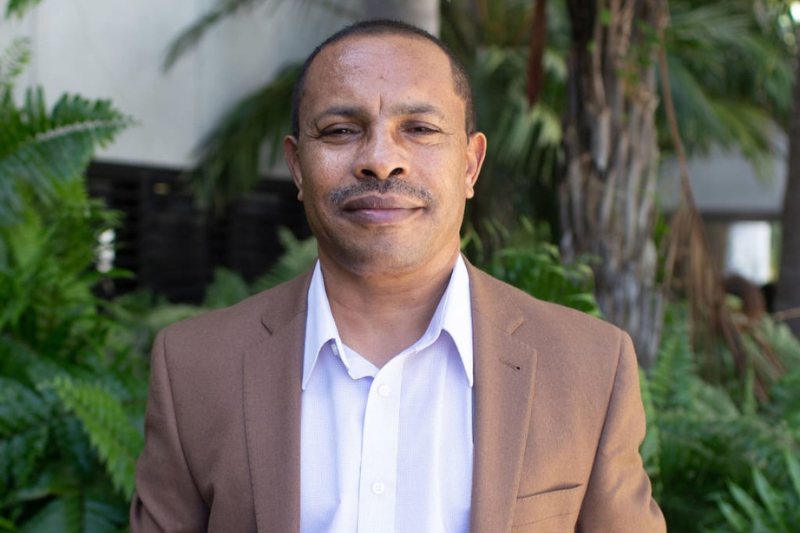
Assefa Melesse
Dr. Melesse’s work is dedicated to safeguarding precious water resources, including the understudied upper Nile River. Specializing on hydrological modeling, he is one of the World’s Top 2 Percent of Scientists in the Alper-Doger Scientific Index Rankings for International Water Resources Engineering.
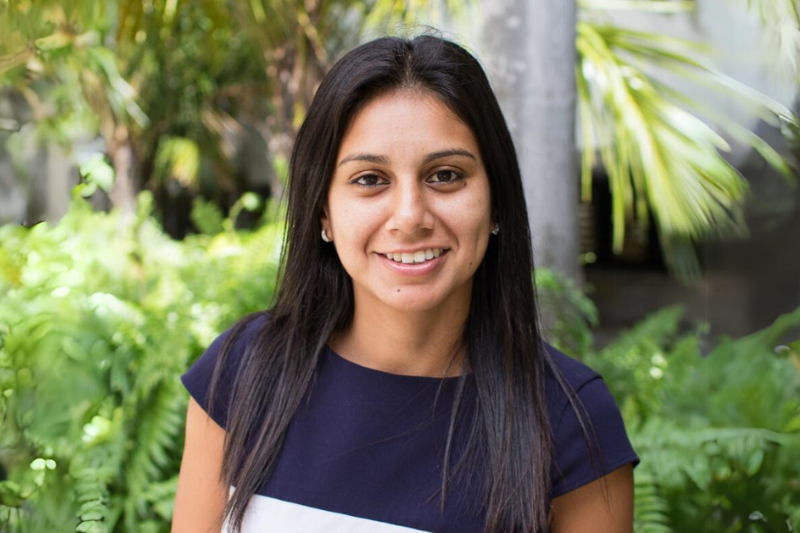
Tania Santiago Perez
Tania Santiago Perez, MS, CTRS is an Instructor of Recreational Therapy at Florida International University. Her research interests include community participation, transition services, intellectual and developmental disabilities, adaptive sports, scuba diving, community recreational therapy services, and spinal cord injury.

Phillip Carter
Dr. Carter is a sociolinguist and scholar of language and culture, focusing primarily on U.S. Latino communities. He works interdisciplinarily, moving between quantitative and qualitative approaches to sociolinguistics, critical discourse analysis, ethnography, and critical theory. Carter is the director of FIU’s Center for the Humanities in an Urban Environment.
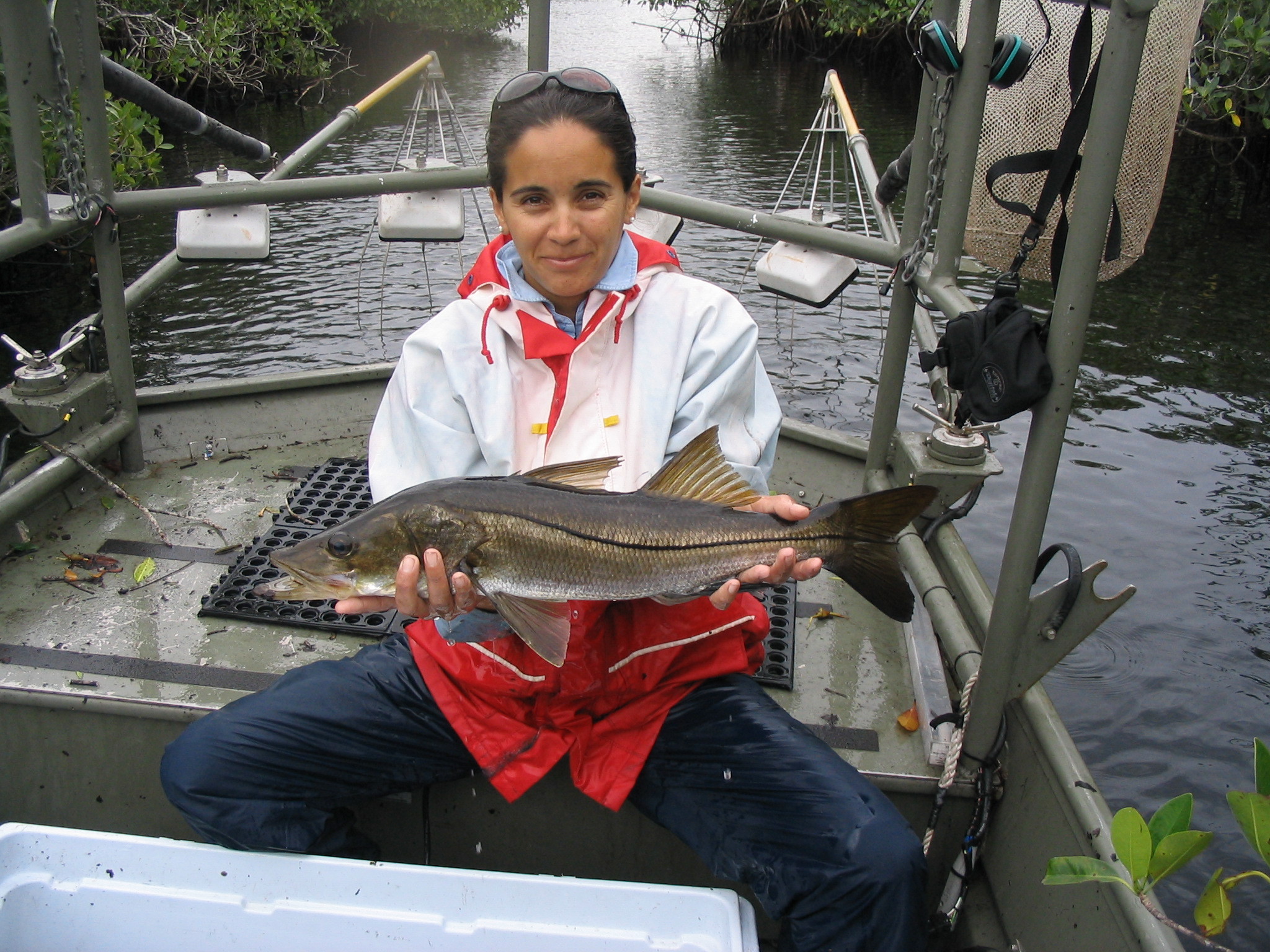
Jennifer Rehage
Dr. Rehage investigates the health of Florida’s recreational fish and fisheries studying how disturbances from natural causes, people and water management affect fish. She recently shocked the world when her research revealed South Florida’s bonefish are testing positive for prescription pharmaceuticals.

Kevin Boswell
Dr. Boswell is a marine ecologist, whose research focuses on the interacting factors that mediate the distributional patterns, behavior, habitat-use, energetics and natural ecology of coastal and ocean animals. His lab integrates advanced sampling techniques including underwater acoustics with observations from autonomous aerial and aquatic platforms to collect high-resolution data to describe spatial and temporal patterns.
News
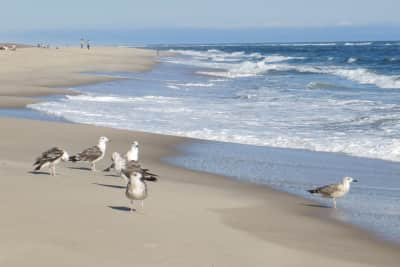 Science & Technology
Science & TechnologyNew York's Coopers Beach named America's best beach as 3 others stricken from top 10
May 22, 2025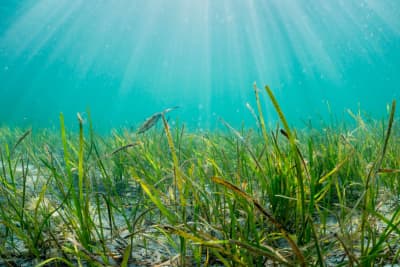 Science & Technology
Science & TechnologyProtecting seagrasses could prevent billions of dollars in damages, research finds
May 6, 2025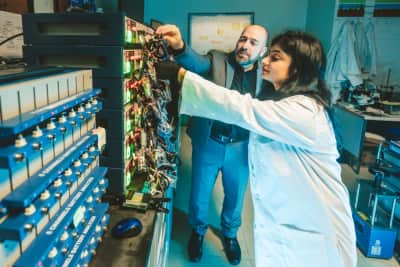 Science & Technology
Science & TechnologyElectric vehicles could travel farther on a single charge thanks to new discovery
Mar 4, 2025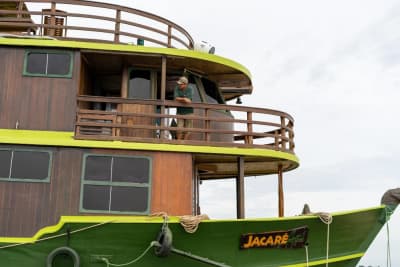 Business & Entrepreneurship
Business & EntrepreneurshipIn the jungle, students learn how to make tourism sustainable
Mar 3, 2025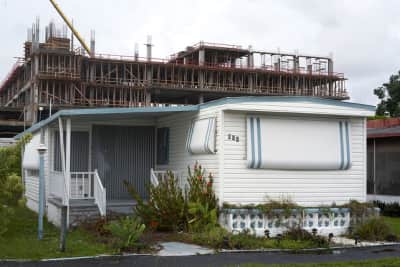 Arts & Culture
Arts & CulturePatricia & Phillip Frost Art Museum FIU opens alumnus’ new solo exhibition
Jan 30, 2025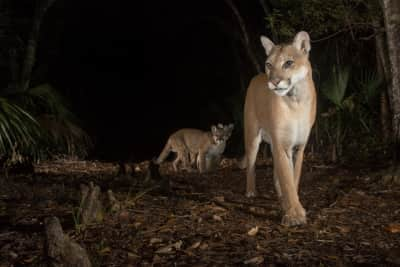 Arts & Culture
Arts & CulturePatricia & Phillip Frost Art Museum FIU opens new photography exhibition Path of the Panther
Jan 24, 2025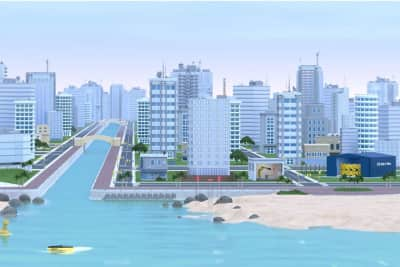 Science & Technology
Science & TechnologyBuilding a Resilient Future
Jan 17, 2025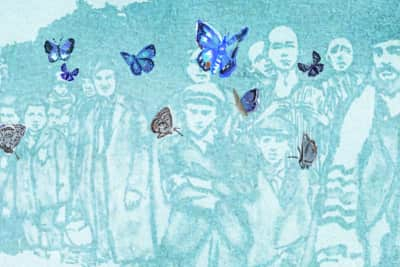 Campus & Community
Campus & Community10th Annual Holocaust & Genocide Awareness Week offers a variety of programming, perspectives
Jan 15, 2025- Campus & Community
An internship at an oyster farm taught me about sustainability
Dec 5, 2024
